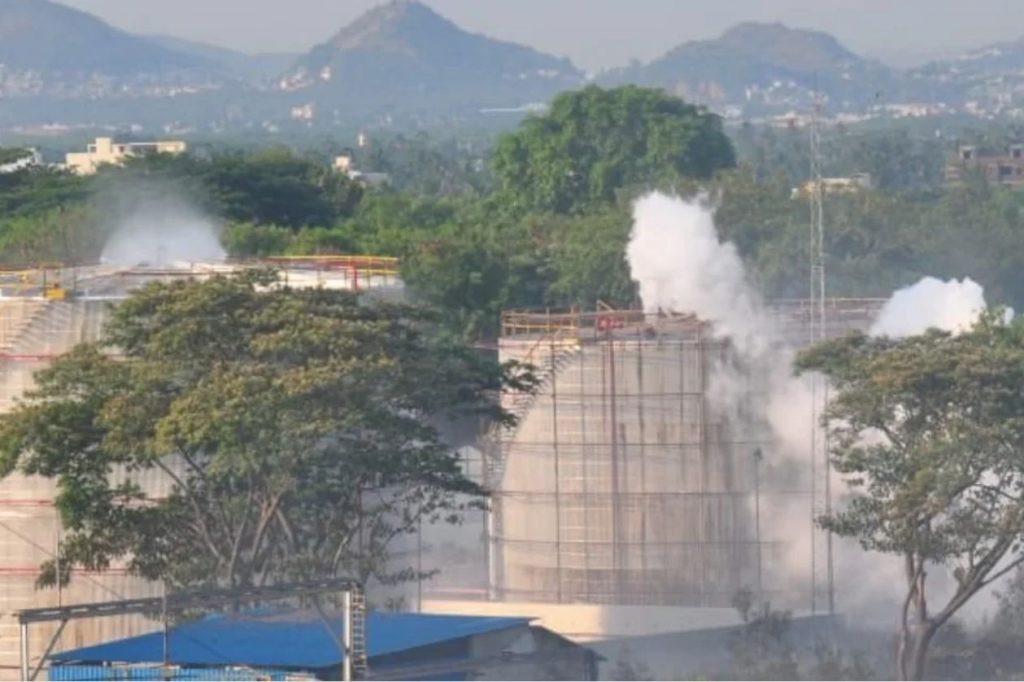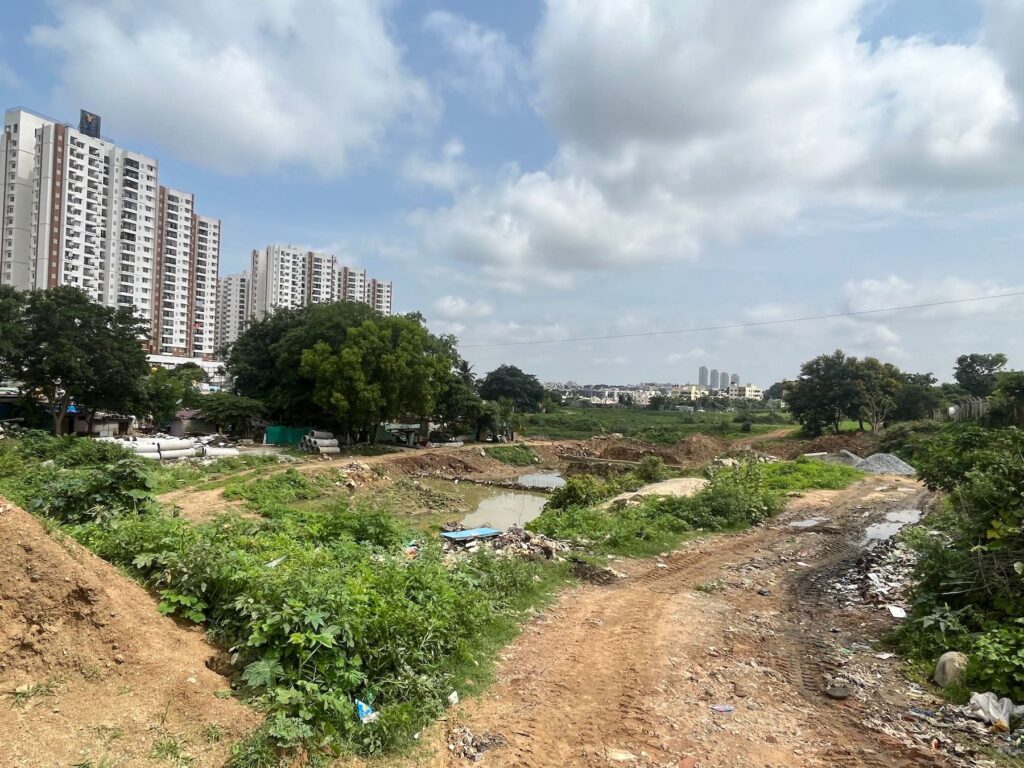MoEF&CC must stop destroying India’s progressive environment, forest and biodiversity protection jurisprudence
Statement issued by peoples movements, networks, researchers and communities from across India.
This statement was submitted to the Ministry on 21st July. it will be resubmitted with more endorsements.
So please endorse, and share widely for more endorsements.
You can also review the statement in Kannada and Hindi

21st July 2022
To:
Hon’ble Shri. Bhupendra Yadav
Union Minister for Environment, Forests and Climate Change
Paryavaran Bhavan
New Delhi
Hon’ble Shri. Ashwini Kumar Choubey
Union Minister of State for Environment, Forests and Climate Change
Paryavaran Bhavan
New Delhi
Shri Sundar Ramanathan
Additional Director/Scientist ‘E’
MoEF&CC
Shri Ved Prakash Mishra
Director
MoEF&CC
Shri. Maneesh Kumar
Assistant Inspector General of Forests
MoEF&CC
(Read text of the statement below)

Sirs,
The proposals of the Union Ministry of Environment, Forests and Climate Change (MoEF&CC) to amend environment, forest and biodiversity protection laws, and also laws regulating pollution control and public liability, is absolutely unconstitutional, anti-nature, anti-people, seriously compromises health and ecological securities of India, and must be immediately and entirely withdrawn.
– The amendments proposed to the Environment Protection Act, 1986, Water (Prevention and Control of Pollution Act) 1974, Air (Prevention and Control of Pollution Act) 1981, Public Liability Insurance Act 1991 are opposed to the very purpose for which these laws were enacted.
– The substantive amendments proposed to the Indian Forest Act 1927 and the Forest Conservation Rules constitute a frontal attack on the already fragile rights of millions of adivasis, indigenous peoples and other forest dependent communities. Their right to be integral to decision making about forests, guaranteed by the Forest Rights Act 2006, is sought to be sidestepped by these amendments. Undertaking such changes without involvement of the Union Ministry of Tribal Affairs is expressly barred by the Allocation of Business Rules 1961.
These, alone, are sufficient reasons for MoEF&CC to immediately withdraw all the proposed amendments.

Equally concerning and absolutely unacceptable is the arbitrary and non-inclusive manner in which the amendments are being hurried through:
– with merely three weeks of public commenting period.
– the announcement of such fundamental changes in environmental laws is made via MoEF&CC website with controversial and illegal stipulation that responses must be submitted via email.
– The Bills proposing amendments have been put out only in English, and on rare occasion in Hindi – not in any other Scheduled Language.
These too are sufficient reasons for MoEF&CC to immediately withdraw all the proposed amendments.

Such an approach to communicating with diverse peoples of India by the Union Government is irreverent of peoples’ concerns, aspirations and anxieties, as also their due right to participate in decision making. The tectonic changes sought to be introduced, which will result in a massive regression in environmental and human rights jurisprudence of the country, is being undertaken in a manner that constitutes abject violation of the Pre-Legislative Consultation Policy that was brought into effect by the Union Ministry of Law & Justice on 5th February 2014.
The process smacks of absolute disregard for democratic and federated decision making:
– No effort whatsoever has been made to consult Local Self Governments, State Legislatures and State and Union Territory Governments.
– The shockingly brief commenting period suggests their opinions do not matter or are merely ritual.
– The emphatic suggestion by Prime Minister Narendra Modi that adherence to the Principle of Free, Prior and Informed Consent should be a cardinal guiding force in the transformation of any public policy and law, is discarded.
– These process by which these amendments are proposed is reminiscent of the modus operandi employed by the Union Government when rushing through Parliament Farm Laws, Citizenship Amendment Act and repealing of Article 370 – and without meaningful and sufficient public debate.
These too are sufficient reasons for MoEF&CC’ to immediately withdraw all the proposed amendments.

Such online notices smack of absolute disregard for peoples’ concerns over their futures in a country that is amongst the most bio geographically diverse in the world and whose population of 1.4 billion (140 crores) is amongst the most culturally, linguistically, politically diverse. This when: the country is reeling under unprecedented heat waves and floods, wrought by climate change.
The proposal advancing decriminalisation of environmental violations clearly indicates that the intent is to promote ‘Ease of Business’ over human rights and environmental considerations. The grandstanding of the representatives of the Union Government in international forums, such as in the Climate Change talks, exposes their duplicity of not walking the talk.

These Bills must also be withdrawn as:
· Changes they seek to bring in are opposed to the very purpose for which these laws were enacted over the past four to five decades and are will result in an highly centralised, arbitrary and deeply discriminatory regime of environmental governance.
· These changes will undeniably worsen the state of India’s environment, biodiversity, and public health.
· Millions who now suffer due to the worsening state of India’s environment, especially due to widespread pollution, will suffer even more.
· Pollution of air, water, soil and our bodies, of the food web, which is increasingly causing chronic ailments and is also a chief cause of morbidity, will worsen.
These too are further reasons for MoEF&CC to immediately withdraw all the proposed amendments.

In addition to the above, the following specific reasons demand withdrawal of all of these amendments:
1) Opposed to long sustained progressive environmental jurisprudence of India: From the time when the Government of India accepted the 1980 Report of the Committee for Recommending Legislative measure and Administrative Machinery for Ensuring Environmental Protection, and the laws to protect wildlife, prevent pollution and protect forests that were passed earlier, it has been a clear objective to ensure that environmental violations are considered extremely seriously for they affect life – not merely human but all living forms. Thereby, such violations deserve to be considered as crimes under the Indian Penal Code. The graded punishment introduced through these laws was with the intent of ensuring no slack can be tolerated in environmental governance. The fact that these laws were not implemented in their letter and spirit, and effectively adjudicated, does not imply it is the failure of the laws. It merely suggests failure on the part of MoEF&CC and the entire environmental and forest regulatory systems whose job it is to implement theme. That MoEF&CC now claims these amendments will improve environmental jurisprudence is perverse justification and must be unequivocally condemned.
2) Attacks Rights of victims of Industrial disasters, and rewards polluters: The Public Liability Insurance Act was enacted in the wake of horrific crimes committed by Union Carbide and the regulatory mechanism which failed to tackle the corporation. The resultant killing and maiming of lakhs was a key reason why the law was passed: it sought to provide quick remedy to those affected by such industrial disasters. To weaken such a law, rather than strengthening it even more in light of the many many disasters that have occurred subsequently, demonstrates the Ministry’s intent: it does not want effective action against environmental culprits. Instead it wants to go a further step beyond its prevailing half-hearted implementation of these laws to weaken them and protect the interests of polluters. The Ministry is thus working here against its very mandate.

3) Comprehensively compromises international environmental leadership: India has led the world from the time of the United Nations Conference on Human Environment, 1972 through to the United Nations Conference on Environment and Development, 1992 to promote a sovereign and global environmental jurisprudence which would ensure everyone on this planet has equal rights and equitable opportunities to live in a clean and wholesome environment. As a part of this process, India advocated adoption of the Precautionary Principle, the Principle of Intergenerational Equity, the Public Trust Doctrine, the Polluter Pays Principle, and importantly the Principle of Common but Differentiated Responsibility. The Supreme Court of India and various High Courts, as also the National Green Tribunal, have played their due roles in further advancing such progressive environmental jurisprudence. MoEF&CC’s proposed amendments cast a huge shadow on all of these progressions, and will result in a situation that puts India back by decades
4) So called decriminalisation, a licence to pollute: Across various laws that MoEF&CC proposes to amend, the running theme is of decriminalisation of environmental offences pitched on the claim that lack of timely and effective judicial decision making is sustaining such violations, and thereby the remedy lies in treating them as civil offences with fines. This is not in the least sufficient grounds for decriminalising environmental laws. A close reading of the prevailing situation reveals that even though existing laws are not implemented effectively, the existence of the threat of criminal action against environmental violators serves as a serious deterrent, especially against corporate crimes. Despite weak budgetary support, Pollution Control Boards, Forest Departments and Environmental Regulators are able to employ these provisions, notwithstanding brute force and influence corporations wield in prevailing the political situation, because India’s environmental jurisprudence relies on criminal jurisprudence. The amendments proposed are of such a nature that they will remove the very teeth that are necessary in regulation to protect India’s environment and human rights.

5) Corporations escape, People suffer: A perverse logic is also being promoted by MoEF&CC by the manner in which it is undertaking such so-called decriminalisation of environmental and forest protection laws. While there is a strong case to attend to various that colonial laws that form the basis of forest laws, which are systematically employed to attack fundamental rights of adivasis, indigenous peoples, pastoralists, farming communities, etc., and these must be corrected with due dispatch, the proposed changes are of a nature that they weaken such provisions that when employed effectively can tackle corporate offences and protect forests, rivers, coastal commons, wetlands, etc. To replace these provisions merely with fines that in no manner compensates extensive damage caused, is clearly indicative that the Ministry is working hard to protect polluters over the fundamental rights of the peoples of India and its extraordinary biodiversity.
6) Sidesteps judicial oversight over environmental violations: It is also to be noted with grave concern that the amendments promote across the board replacement of prevailing judicial oversight over environmental regulations with mere executive oversight. Such a move is absolutely in contradiction of the very foundation of India’s environmental jurisprudence which treats environmental violations on par with violation of fundamental rights. That the Right to Life, which includes the Right to a Clean Environment, is now sought to be remedied through mere fines, and adjudicated by an Executive, demonstrates extraordinary complicity of MoEF&CC in promoting corporate and business interests. Moreover, this schema also proposes that the Executive who decides is not only far removed from reality, but is also the one who is already overburdened with multiple duties. This is particularly the case with the office of the Deputy Commissioner/District Commissioner/District Magistrate. Another deeply disconcerting aspect is that such executives are also those who have the mandate to promote mining/extraction, industrial and infrastructural developments which are the very activities that cause environmental destruction and create contestations. To place them in the role of adjudicators over environmental and forest violations, amounts to making them a judge in their own cause which is anathema in law. Yet, it is this model that the Ministry proposes to employ, dismissing the prevailing system of oversight by independent and autonomous judicial officers. Besides, there are proposals to centralise their appointments, which in effect make the process in transparent and unaccountable. It can well be imagined that this mechanism could result in widespread accommodation of corrupt officers post-retirement. Such a practice is more than likely to protect corporate interests over environmental and social justice causes, and consequences may well be imagined.

7) Legalises ongoing illegal dilution of environmental regulations: Over time MoEF&CC has been diluting India’s environmental protection regimes through a variety of circulars and office orders. This has drawn severe criticism from the judiciary time and again. A close reading of the proposed amendments to environmental and forest protection laws with the systematic weakening employed through circulars and orders, reveals the current exercise is nothing but an adjustment of prevailing dilutions through statutory action. The outcome will be that our environment, forests and biodiversity protection laws will be so trained to be supportive of corporations, both Indian and foreign, and this will severely and irreversibly impact lives and livelihoods of millions across India.
8) Subverting sovereign law making at the behest of foreign powers: The proposed amendments also follow in sum and substance the dictum of the 2009 MOU signed by MoEF&CC with United States Environmental Protection Agency, by which the latter provided the former with US$ 2 million to undertake the following task: “The first activity that the selected recipient should undertake is the organization of a workshop with a cross-section of Indian stakeholders and experts to facilitate a dialogue concerning the establishment of environmental civil judicial authority in India. This dialogue should be preceded by an analysis, to be developed by EPA, of India’s current and relevant statutory provisions, with a discussion of their interpretations and application in civil cases, as well as specific recommended changes to the Indian Constitution or environmental statues/regulations that are necessary to establish civil judicial authorities.” (Establishment of Legal Authority for Civil Judicial/Administrative Enforcement of Environmental Requirements and Technical Assistance on Environmental Governance Program for India , cf. EPA/OIA 2009-001). The Ministry undertook this task, even as it already was promoting systematic dilution in how environmental violations would be treated, as with the National Environment Policy, 2006, an outcome of the World Bank sponsored Environmental Management Capacity Building Programme, a primary objective of which was to turn India’s environmental jurisprudence based on criminal jurisprudence to one based on civil action as required by US EPA. This controversial shift is now being promoted by the Government of India unabashedly. It must shock every conscious citizen of India that sovereign law making powers are subordinated to influence and financing by foreign governments and international financial institutions.
9) Agitate against administrative law principles: The proposed amendments are absolutely violative of the principles that govern administrative law which guarantee rule of law. The amendments constitute efforts that will substantially weaken environmental governance of India. This not only is bad in law, but it is extra-constitutional and sets a dangerous precedent which must be stopped post haste.
For all the above reasons, we demand that the proposed Bills are withdrawn.

If MoEF&CC is truly keen to work to its mandate, then it must ensure that it works in a deeply democratic manner and to protect sovereign processes of law making – without keeling to influences from foreign and Indian corporations or to foreign governments and international financial institutions. It must work in a way that peoples of India, the Local and State Governments, all the environmental, biodiversity management and forest protection agencies, along with the Biodiversity Management Committees and Forest Rights Committees, as also District/Metropolitan Planning Committees and their constituents, will be able to meaningfully and with essential dignity be able debate and discuss any of the proposals of the Ministry guided by processes contained in the Principle of Free, Prior and Informed Consent.
Signed:
Leo F. Saldanha Environment Support Group, and on behalf of Coalition for Environmental Justice in India
Prof. Babu Mathew, Adjunct Professor & Director, Centre for Labour Studies, National Law School of India University
National Alliance of Peoples’ Movement
Prof. Rajeev Gowda, Ex- Member of Parliament (Rajya Sabha)
Prof. Sony Pellisery, Director, Institute of Public Policy, National Law School of India University
Medha Patkar, Narmada Bachao Andolan
Tara Murali, Architect, Chennai
Nikhil Dey, Mazdoor Kisan Kashtakari Sanghatan, Rajasthan
Sonu Yadav, Delhi Solidarity Group
Ashok Sirimali, mines, minerals and People
Ashok Chowdhury, All India Union of Forest Working Peoples
Bhargavi S. Rao, Senior Fellow and Trustee, Environment Support Group
Shripad Dharmadhikari, Manthan, Pune
Aruna Rodrigues, Lead Petitioner in PIL against GMOs in Supreme Court of India, Mhow, Madhya Pradesh
Joe Xavier, S.J., Director, Indian Social Institute, Bangalore
S. Janakarajan, retired Professoer from Madras Institute of Development Studies, Chennai
Friends of the Earth, India
Himanshu Thakkar, South Asia Network on Dams, Rivers and People
Willy, Indian Social Action Forum- INSAF
Narasimha Reddy Donthi, Joint Action for Water, Hyderabad
Vijayasingh Ronald David on behalf of COORG Organisation for Rural Development and National Adivasi Alliance
Ramnarayan, Ecologist, Uttarakhand
Rohit Prajapathi, Paryavaran Suraksha Samithi, Baroda
Viren Lobo, ABMKSS
Shruti, Anirudh Menon, Eshwarappa, Janani Suresh, Environment Support Group, Bangalore
Address for contact:
Environment Support Group (Trust)
[Environmental, Social Justice and Governance Initiatives}
1572, 36th Cross, Puneeth Rajkumar Road (Ring Road)
Banashankari II Stage, Bangalore 560070. INDIA
Tel: 91-80-267135560, 91-80-26713316
Email: [email protected] / [email protected]


A much needed and commendable effort by ESG.I many a time get enlightened from your news letter.
I fully endorse objections raised by ESG on this horrendous alteration of laws.
In solidarity